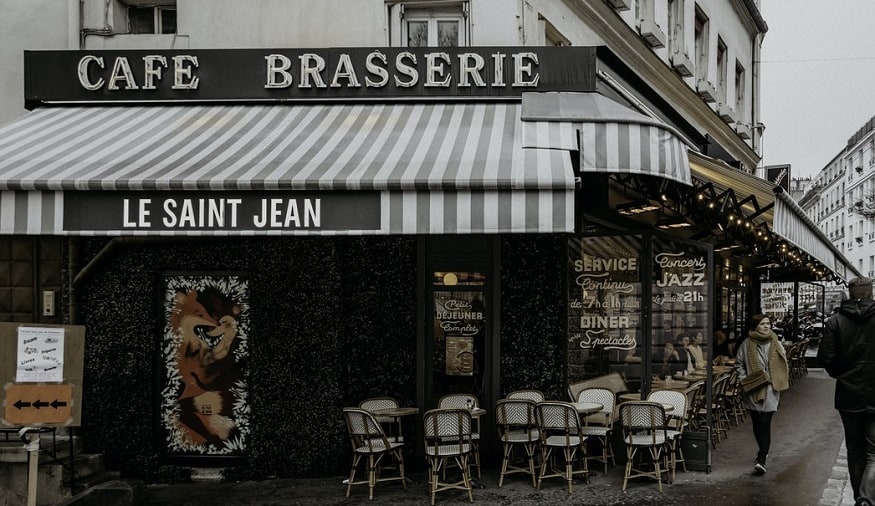As bars, cafés and other eating establishments open up, the government is using barcodes for tracing.
On Wednesday, France is starting phase 3 of its reopening plan, which includes eating establishments and will involve the use of QR code sign-ins for contact tracing.
The quick response codes are meant to help keep track of customers in case an outbreak should occur.
On June 9, assuming the situations continues to remain as it is (or better) the government will allow eating establishments, gyms and swimming pools to open. The curfew will be extended from 9pm to 11pm, and employees will no longer be required to work from home if possible. The reopening of restaurants will mean indoor dining, instead of the current rule of outdoor dining only.
To be able to keep track of any COVID-19 infections that do arise, and to effectively implement contact tracing, QR code sign-ins will be used. This will allow customers to use their smartphones to scan the barcode to check in at a certain location as an alternative to completing a form.
Beyond the QR code sign-ins, other precautions will also be taken to reduce the spread of COVID-19.
Large events, such as concerts and sports events, will return but will require the use of a “health passport”. Those will provide attendees with a barcode that they can display for scanning upon arrival and that will provide proof of either vaccination or a recent negative COVID-19 test. That passport code won’t be required for restaurants, bars, cafés, gyms and other “everyday activity” places where the check-ins are considered enough. It is only very large gatherings and events that will require the additional code.
Everyday activity establishments will need to ensure that their customers have checked in upon arrival using either a form completed manually – providing their name  and contact details – or scanning using QR code sign-ins. This type of strategy has already been implemented in many countries around the world that use the check-ins and barcodes to keep track of who might have been exposed to COVID-19 if a customer subsequently tests positive for the virus.
and contact details – or scanning using QR code sign-ins. This type of strategy has already been implemented in many countries around the world that use the check-ins and barcodes to keep track of who might have been exposed to COVID-19 if a customer subsequently tests positive for the virus.

